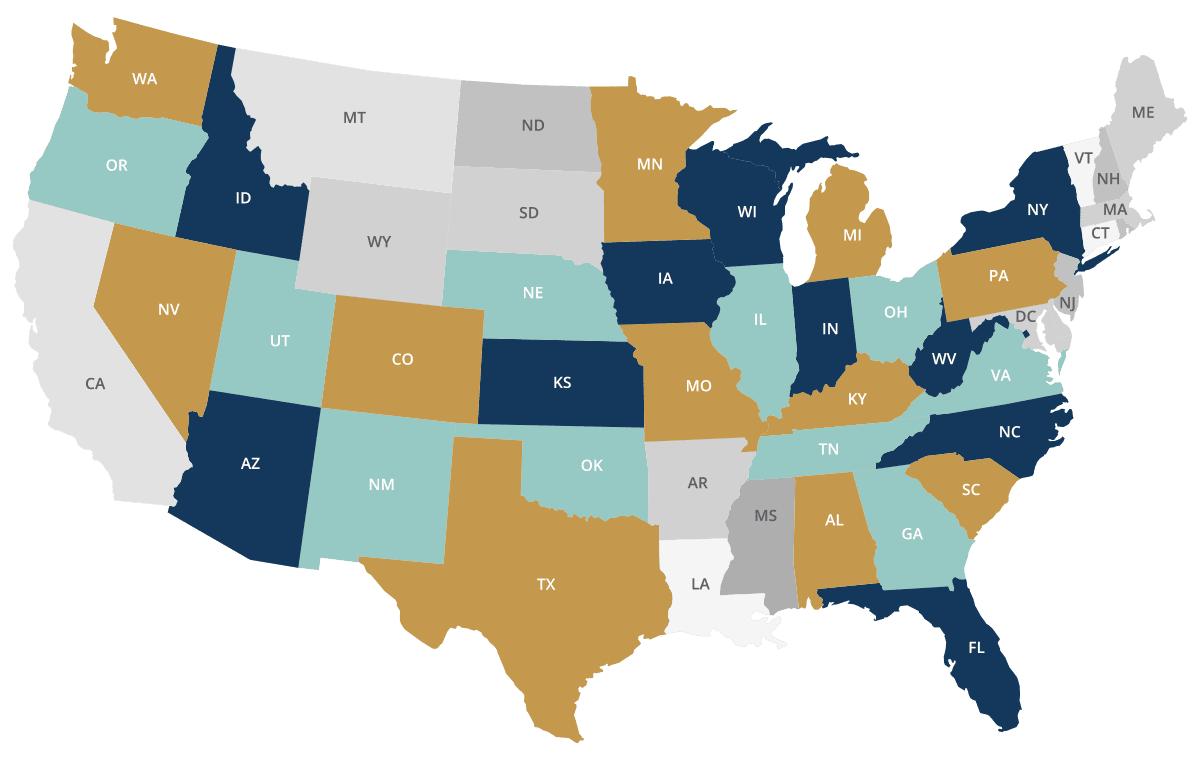
When it comes to feeling extreme excitement and tremendous fear at the same time, nothing gets as close to it as buying a new home. This is one massive investment, and well worth taking the time to get the right protection. Don’t buy a home without homeowners insurance.
Approximately 93% of homeowners in the U.S. have some type of home insurance policy. While it is not required by the government, mortgage loans will make it mandatory. One in 20 insured homes files a claim annually, and one in 40 will make a claim for wind and hail damage.
Don’t gamble with your home insurance. We will tell you what you need to consider when you purchase insurance. Now, let’s get to it.
What is Homeowners Insurance?
When you purchase a home, bad things can happen no matter what precautions you take. If you experience damage or a loss, or if you get sued because of an injury from your property, homeowner’s insurance protects you so that you do not incur financial hardship.
It is good to buy insurance because you want to safeguard your home and your finances. A standard homeowners insurance policy will include:
- Protection for your dwelling
- Protection for belongings
- Liability coverage
- Additional cost-of-living expenses, should your home be uninhabitable from a loss
Such policies do not cover wear and tear, earthquakes, floods, and high-value electronics or jewelry. You would need to buy insurance that covers these things.
Now that you have a quick background, let’s discuss the factors you must consider.
1. Decide What You Need
Here is where to start. You must know what you want to be covered. Such as:
- Replacement cost of the home
- The total value of belongings
- The total value of your assets
- Coverage for additional structures on the property like a shed or garage
For high-risk areas, you would need to add on earthquake and flood insurance. Mark that down as a “must have” if this affects you.
2. Calculate the Amount of Coverage Needed
First, you must find the replacement cost of the home. The Insurance Information Institute says that the two biggest factors are the size of the home and if it is new construction. You will also want to include interior and exterior construction materials.
Plus, include special features like a pool or garage to help you determine the cost of replacing your dwelling. You can have your insurer help you with an estimate or you can hire a third party to help you calculate it.
Second, perform a home inventory, including a list of your possessions. Once you record your inventory, decide if you want to ensure your personal property for a replacement cost coverage, or if you would rather have its actual value.
Third, if you need to rebuild your home and make an alternative living arrangement, decide how much you will need for additional living expenses.
Next, there is liability insurance. Most homeowner insurance policies have a minimum of $100,000. The Insurance Information Institute recommends you carry $300,000 to $500,000 in liability coverage.
3. Have Personal Details and Home Information Handy
Now, it’s time for obtaining quotes.
Gathering insurance quotes can be an enormous task. You can make it easier by keeping your personal and home information close by. It will expedite the process.
For your personal information, have the following ready to go:
- Name
- Date of birth
- Marital status
- Contact information
- For information on your home, have these items ready to share:
- The address
- How long you are living there
- The type of home
- If it is your primary residence
- Is there a mortgage on the property?
- The year they built it
- Square footage
- Number of bedrooms
- Number of bathrooms
- Number of stories
- The material they made your building of (exterior wall and roof)
- Heating or cooling systems
- Type of foundation
Plus, it is good to tell a provider how far the home is located from a fire hydrant and fire station, besides any other home safety systems, when you buy insurance.
4. Compare Quotes
Many professionals highly recommend gathering three quotes at the least before deciding on the best insurance for you. Also, you want to ask for recommendations from relatives and friends. Your state insurance department can give you a provider’s complaint ratio if you call them.
Beyond the pricing, you want to compare what the policies will cover and decide on which is best for you. Check the deductibles and coverage amounts. They should be equal in all the quotes.
5. Check Discounts
You may qualify for a discount, so be sure to check that too. Here are some popular discounts:
- Multi-policy discounts
- New home buyer discounts
- Paperless discounts
- Automatic payment, electronic funds transfer, or pay-in-full
- Claims-free discount
- Loyalty discount
- Home safety discount
- Smoke-free discount
- Home improvement discount
There may be a way to reduce your costs. A new home is an enormous expense, so take advantage of potential discounts!
6. Trustworthiness
Get the most value for your money. It helps to research the insurance provider and see that they are trustworthy. The insurance company’s financial strength can help you determine if they will pay a claim when you need it, which is graded by independent agencies.
AM Best is one agency where you can find ratings. They assign insurance providers letter grades which are from A+ to F. Customer satisfaction surveys will offer helpful insight too, like the one from J.D. Power.
7. Ensure Your Details are Correct
By now, you should have identified an insurance provider that you are ready to purchase from.
Before signing off, you will want to do one last check and make sure your details are correct. Also, just look over everything again and make sure that the policy is what you want.
Determine how you will pay your premiums. It may go through the mortgage lender into an escrow account.
At last, you can choose the date for the policy. If switching to a new policy, you will want to inform your mortgage lender.
The Right Homeowners Insurance for You
Your family and your possessions are important. You want the best insurance to protect them. With Gessel & Associates, we can advise you with homeowners insurance.
We have a strong passion for insurance, and we treat our customers like family. Experience the difference. Contact us today.


